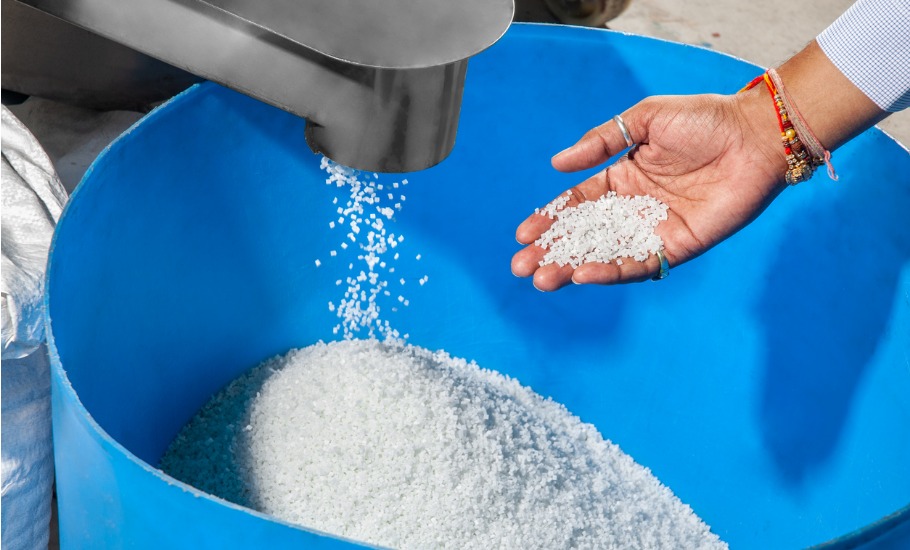
'Collateral-free loans a game changer', but plastic makers cast doubt
The plastic industry in Tamil Nadu has reserved its appreciation for the first tranche of the Centre’s relief package, aimed at the micro, small and medium enterprises (MSMEs), as they seek immediate loan waiver and even doubt the effectiveness of its implementation.

The plastic industry in Tamil Nadu has reserved its appreciation for the first tranche of the Centre’s relief package, aimed at the micro, small and medium enterprises (MSMEs), as they seek immediate loan waiver and even doubt the effectiveness of its implementation.
Union Finance Minister Nirmala Sitharaman had on May 13 announced collateral-free loans to MSMEs, which will be fully guaranteed by the Centre. The government has allotted ₹3 lakh crore for this scheme and MSMEs with a turnover of up to ₹100 crore and with outstanding credit of up to ₹25 crore will be eligible to borrow up to 20 per cent of their total outstanding credit as on February 29, 2020, as per the announcement.
Tamil Nadu, along with Gujarat and Maharashtra, houses a large number of plastic manufacturers in the country, offering direct employment to over 5 lakh people. At least 7,000 of these units come under MSME, according to the Tamil Nadu Plastic Manufacturers Association.
Related news: ₹3 lakh crore credit guarantee scheme may be launched this week
In Chennai, L Meiyappan, who runs a small enterprise called Eco Pack Private Limited, is a little excited about the announcements, but has a word of caution.
Meiyappan, who is involved in the production of dust proof plastic packaging material used in the transport of automobiles, says, “Recovery burden falls on banks, and the banks are not happy about lending to MSMEs as such. The ones doing well will avail the loan while the ones suffering due to the lockdown or on the brink of collapse will be left to fend for themselves.”
“The government has decided to offer us liquidity, while we do business and recover. Rather they could have announced an interest waiver on loans availed by MSMEs for two months since the lockdown. It would have been more beneficial to bring down the interest on loans to 7-7.5 per cent from 10.5-11.5 per cent for this duration,” he says.
Meiyappan adds that since two months with no production or sales happening, units like his have been paying salaries along with the interest. “Units like mine that are dependent on the automobile industry, which has been bargaining with the government to bring the GST ambit to 18 per cent from the existing 28 per cent, have reduced working capital due to the deductions,” he says.
Ground implementation holds the key
The manufacturers also say that unlike in disasters when the infrastructure is damaged or destroyed, as in the times of natural calamities, the pandemic has only left them with two months of delay in schedule. So, even if they are upbeat about reviving the industry, especially with the packaging industry being dependent on plastic units, they are unsure about what is there for them in fine print.
B Swaminathan, founder member of the association, says, “They could have designated state financial agencies or Tamil Nadu financial institutions like the Tamilnadu Industrial Investment Corporation Limited, Small Industries Development Bank of India, etc. as the nodal agency. Implementation would be the key here. We have already seen that reforms announced by the Reserve Bank of India are seldom taken up by banks for implementation.”
‘Educate MSMEs’
S Rakappan, the president of the association and the owner of Chennai Plastics Sacks Cluster Private Limited, says that a large part of the units may lack clarity about the benefits of the first tranche announcement. “We would request them to appoint consultants who can identify the clusters of industries and evaluate who will benefit. Though, at the outset, collateral free-loan looks like a welcome move,” he adds.
The plastic industry in the state has suffered a lot since the ban on single use plastics was implemented in the state (January 1, 2019), says the manufacturer who see the recent dependence on non-woven plastic for the personal protective equipment and masks as a welcome sign for their business.
“The vilification of plastic has cost us a lot, but the recent events have changed the game for us. While the loans come as a boost, we also have to battle labour issues as in my unit, where over 300 of them hailing from Odisha and Bihar have left. Also, the additional challenge is in the form of fixed costs of power that we continue to pay though there has been no production,” says Rakappan.
Related news: MSMEs sceptical about credit flow despite promise of collateral-free loans


